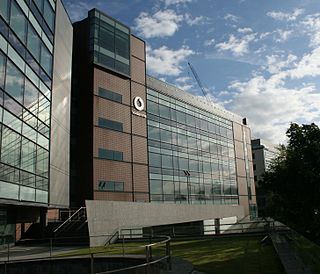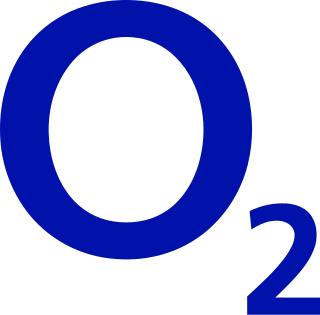Broadband services
Home broadband
Digiweb offer a variety of broadband services in Ireland: Metro Wireless Broadband (broadband and phone since 2005), mobile broadband (during 2007), DSL, VDSL (over standard phone lines), Fibre broadband, and satellite broadband.
The main wireless broadband service offers various broadband packages from 5 Mbit/s down/1 Mb up (economy service) to 30 Mb down/1 Mb up (premium service). Transceiver locations are available in all major cities – Dublin, Cork, Limerick, Galway, Waterford, Kilkenny – as well as a dozen or so towns around Ireland including Drogheda, Dundalk and Letterkenny. The service requires line-of-sight to the transceiver location and is offered up to 10 km from the point-of-service; this limit was set under the original Comreg licence conditions, but is also a limitation of the system for adequate performance in heavy rain. Metro uses DOCSIS 2.0 over microwave frequencies. Digiweb are also testing a DOCSIS 3.0 platform supporting speeds in excess of 100 Mbit/s. [3]
A smaller-scale wireless broadband service (using Airspan) is offered in smaller towns around the country.
As Digiweb offer a phone service without the Eircom copper pair, they are one of the few competitors along to Eircom's fixed line voice service.
Mobile broadband and phone
In April 2007, Digiweb announced that they are set to become Ireland's fifth mobile phone provider. ComReg, the telecoms regulator, allocated the 088 prefix to the new network – the same prefix used by Eircell's old analogue TACS system. The service would have been Ireland's first 4G network and should have taken 18 months to be rolled out, however the rollout was cancelled by early 2008. [4] [5]
Business broadband
In 2007, they launched a revised business broadband portfolio with speeds of 100 Mbit/s [6] as well as higher-end solutions with extra capacity and symmetrical speeds. [7] In mid-2008, they announced the launch of a 1 Gb business package. [8]

Wireless broadband is a telecommunications technology that provides high-speed wireless Internet access or computer networking access over a wide area. The term encompasses both fixed and mobile broadband.
Telecommunications in Ireland operate in a regulated competitive market that provides customers with a wide array of advanced digital services. This article explores Ireland's telecommunications infrastructure including: fixed and mobile networks, The voice, data and Internet services, cable television, developments in next-generation networks and broadcast networks for radio and television.

Telecommunications infrastructure in South Africa provides modern and efficient service to urban areas, including cellular and internet services. The Independent Communications Authority of South Africa (ICASA) is the watchdog of the telecommunications in the country.

Multichannel multipoint distribution service (MMDS), formerly known as broadband radio service (BRS) and also known as wireless cable, is a wireless telecommunications technology, used for general-purpose broadband networking or, more commonly, as an alternative method of cable television programming reception.

Internet access is a facility or service that provides connectivity for a computer, a computer network, or other network device to the Internet, and for individuals or organizations to access or use applications such as email and the World Wide Web. Internet access is offered for sale by an international hierarchy of Internet service providers (ISPs) using various networking technologies. At the retail level, many organizations, including municipal entities, also provide cost-free access to the general public.

Eircom Limited, trading as Eir, is a large fixed, mobile and broadband telecommunications company in Ireland. The now privatised company, which is currently incorporated in Jersey, traces its origins to the Ireland's former state-owned monopoly telecommunication provider Telecom Éireann and its predecessors, P&T and before the foundation of the state, the telecommunications division of the GPO. It remains the largest telecommunications operator in Ireland and has overseas operations focused on the business and corporate telecom markets in the United Kingdom. The company was in majority state ownership until 1999, when it was privatised through a floatation on the Irish and New York Stock Exchanges.

Bell Mobility Inc. is a Canadian wireless network operator and the division of Bell Canada which offers wireless services across Canada. It operates networks using LTE and HSPA+ on its mainstream networks. Bell Mobility is the third-largest wireless carrier in Canada, with 10.1 million subscribers as of Q3 2020.
Meteor Mobile Communications Limited was a GSM and UMTS mobile telecommunications company in Ireland. They operated a GSM/GPRS/EDGE/UMTS(HSPA+) and LTE cellular communications network under licence from the Commission for Communications Regulation (ComReg), and were the third entrant in the market, after Vodafone Ireland and Three Ireland. The company was a wholly owned subsidiary of Irish telecoms network Eir, having been purchased for €420m in 2005. Meteor was the only Irish owned mobile operator in Ireland. Meteor once issued new numbers with the prefix code 085. Since the introduction of full mobile number portability in Ireland, access codes have become less relevant as mobile telephone users may now retain their mobile telephone numbers when moving between mobile network operators. As a result, Meteor customers could have numbers starting with the codes 083, 085, 086, 087, or 089.

Vodafone Ireland Limited, a wholly owned subsidiary of the Vodafone Group, is a mobile phone network and broadband provider in Ireland. It was created when the Vodafone Group bought Eircell, the mobile arm of Telecom Éireann. As of September 2019, Vodafone has 26% of broadband subscribers, and 43% of mobile phone subscribers.

Telefónica Ireland was a broadband and telecommunications provider in Ireland that traded under the O2 brand (typeset as O2). O2 Ireland was previously called Esat Digifone when it was owned by Esat Telecommunications (and Telenor) from 1997 to 2006.

WiBro is a wireless broadband Internet technology developed by the South Korean telecoms industry. WiBro is the South Korean service name for IEEE 802.16e international standard. By the end of 2012, the Korean Communications Commission intends to increase WiBro broadband connection speeds to 10Mbit/s, around ten times the 2009 speed, which will complement their 1Gbit/s fibre-optic network. The WiBro networks were shut down at the end of 2018.

Smart Telecom (AIM:SMR) was an Irish telecom operator that started as a phone card seller. It was also the third largest provider of cost-sensitive telecom services sector in Ireland, behind the incumbent operators eircom and BT Ireland. It had an estimated 50,000 land-line customers and 18,000 broadband subscribers. Smart operated several services:
Telecommunications in Montenegro includes radio, television, fixed and mobile telephones, and the Internet.

Sri Lanka Telecom PLC, doing business as SLT-MOBITEL, is the national telecommunications services provider in Sri Lanka and one of the country's largest companies with an annual turnover in excess of Rs 40 billion. The company provides domestic and corporate services which include fixed and wireless telephony, Internet access and IT services to domestic, public and business sector customers. As of 2018 SLT-MOBITEL was Sri Lanka's second largest mobile network operator with over 7.9 million subscribers.
ONO was a Spanish broadband communication and entertainment company, delivering integrated telephone, television and Internet services to its residential customers. In this segment, it has 3.7 million services contracted and over six million users.
Internet in Australia first became available on a permanent basis to universities in Australia in May 1989, via AARNet. Pegasus Networks was Australia's first public Internet provider in June 1989. The first commercial dial-up Internet Service Provider (ISP) appeared in capital cities soon after, and by the mid-1990s almost the entire country had a range of choices of dial-up ISPs. Today, Internet access is available through a range of technologies, i.e. hybrid fibre coaxial cable, digital subscriber line (DSL), Integrated Services Digital Network (ISDN) and satellite Internet. In July 2009, the federal government, in partnership with the industrial sector, began rolling out a nationwide fibre-to-the-premises (FTTP) and improved fixed wireless and satellite access through the National Broadband Network. Subsequently, the roll out was downgraded to a Multi-Technology Mix on the promise of it being less expensive and with earlier completion. In October 2020, the federal government announced an upgrade by 2023 of NBN fibre-to-the-node (FTTN) services to FTTP for 2 million households, at a cost of A$3.5 billion.
Internet access is widely available in New Zealand, with 94% of New Zealanders having access to the internet as of January 2021. It first became accessible to university students in the country in 1989. As of June 2018, there are 1,867,000 broadband connections, of which 1,524,000 are residential and 361,000 are business or government.

The internet is an important contributor to Ireland's economy and education. The telecommunications infrastructure in Ireland provides Internet access to businesses and home users in various forms, including fibre, cable, DSL, wireless, Fixed Wireless and mobile. In 2019, 91% of households have access to the Internet in Ireland at home, with 88% of individuals reporting that they had used the internet in the three months prior to interview.
Viatel Technology Group is a Dublin-based technology company, founded from some of the elements of the Nasdaq-quoted US technology company of the same name but now part of a holding with Digiweb, focused primarily on the Irish market.











